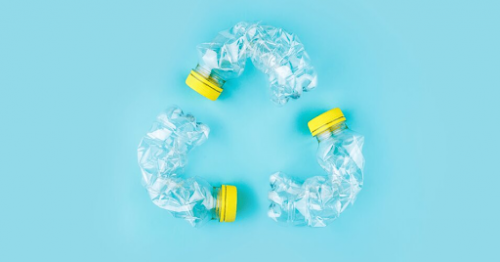
Reduce, reuse, and recycle isn’t only a catchy phrase; it can also serve as the basis for a successful approach to reducing plastic pollution. When it comes to working towards an environmentally friendly future, eliminating needless plastic usage and switching to reusable materials is a crucial step for businesses of all sizes.
Many businesses don’t currently have an effective and sustainable approach to their plastic recycling, so if you need guidance on how to manage your plastic waste, you should consider consulting experts like Materials Recovery on how to manage your plastic waste in a more eco-friendly way.
Taking steps to become more sustainable as a planet is becoming more and more necessary as the effects of climate change are starting to be realised – so to find out the benefits that going green has on a business, read on.
Why is Plastic Waste Bad?
Around 75% of all plastic produced becomes waste, with less than 10% being recycled. While landfills create a hazard for the environment, up to a third of all plastic waste ends up in nature as ocean pollution, where it can take hundreds of years to decompose. It’s harming human health and eroding biodiversity by causing significant biodiversity loss.
What if the Business Needs to Use Plastic?
While some businesses can go plastic-free, this is not feasible for others, and in those situations, recycling plastic is a vital solution for reducing their impact on the environment. For example, synthetic materials are sometimes required in the textile sector, such as technical fabrics, to ensure that products function properly. Also, to avoid food from spoiling, food supply chains currently rely on plastic packaging.
Reusing and recycling these plastics effectively in the meantime will assist businesses to become more environmentally responsible. The good news is that, as businesses recognise the environmental and economic advantages of doing so, the movement towards increased usage of recycled plastics is gaining momentum. For example, by 2024, Adidas has committed to using only recycled plastics in all of its apparel and shoes.
What Exactly is Plastic Recycling?
Plastic recycling is the process of reusing previously used plastics. Recyclable items might be turned into new goods in one of two ways: they can be converted back into raw materials or transformed directly into a brand-new product. The environmental benefits of recycling include the fact that fewer virgin raw materials are required for the production of new plastics, as well as pollution reduction caused by waste disposal or burning.
The Benefits of Businesses Recycling Plastics
Businesses are greatly responsible for a large portion of the amount of plastic waste that we produce. But if businesses were to recycle and reuse plastics more often, the benefits would be staggering – such as:
Conservation of Natural Resources
Making things from recycled plastic saves a lot of energy, as opposed to creating new plastic from scratch. The saved energy can be used to fulfill other vital economic goals in our country. Recycling plastic reduces the use of other critical natural resources like oil, natural gas, water, and coal during the production process for new plastics. Recycling old and discarded plastic waste consumes less than 30% of petroleum consumption.
Reduces Pollution on the Ecosystem
Climate change is the most common cause of increased pollution levels in the environment. The world’s efforts to reduce climate change typically focus on the emission of greenhouse gases, which is a driving force behind our ever-changing environment. When plastic is manufactured, it releases a large amount of greenhouse gases into the atmosphere. Plastic recycling allows us to cut off the supply of harmful greenhouse gases from entering the air.
Reduces Fossil Fuel Consumption
Millions of barrels of crude oil are required to meet the yearly demand for plastic materials. The recycling process is by far the most environmentally friendly way to reduce fossil fuel use. Plastic recycling is an important step in decreasing oil usage and saving significant amounts of raw materials that would have been used in the manufacturing process. Creating new plastic items also consumes a lot of energy.
The Benefits that businesses would have on the sustainability of our environment from recycling and reusing their plastic waste are numerous. The natural resources that we have on this planet are finite and diminishing; so we need to take more responsibility for how we conduct business practices in terms of waste management.
Interesting Related Article: “Encourage recycling by changing packaging“

